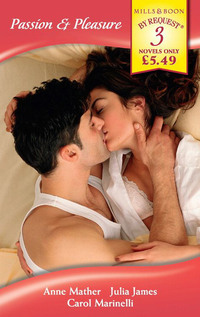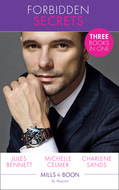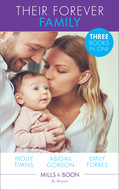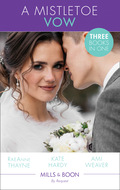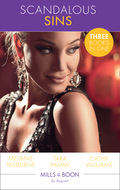Kitap dosya olarak indirilemez ancak uygulamamız üzerinden veya online olarak web sitemizden okunabilir.
Kitabı oku: «Passion & Pleasure», sayfa 2
Chapter Two
FLISS endeavoured not to think about Matthew Quinn again until she’d taken her daughter to school.
Instead, she’d concentrated on Amy’s behaviour, on how disappointed she was that the little girl had lied to her. When, faced with the prospect of Buttons being sent to the local animal shelter for his own safety, Amy had come up with a solution of her own, her mother had been relieved. A friend at school had offered the rabbit a home, she’d said, and Fliss had allowed her to take Buttons away on her grandfather’s wheelbarrow, never dreaming that Amy had had no intention of giving the rabbit to anyone.
Now, however, her deception had been discovered, and in the most embarrassing way possible. Matthew Quinn either considered Fliss was an unfit mother—a label that had been slung at her more times than she cared to remember since, at the age of sixteen, she’d discovered she was pregnant—or an unfeeling one, which was probably worse.
Amy, attempting to justify her actions, had assured her mother that ‘Quinn’ hadn’t minded the fact that he had had an unwanted squatter on his land, but Fliss believed she knew better. From what she’d seen of him, she thought Matthew Quinn was not a well man, and he’d probably only been humouring the child to avoid further argument.
Whatever, Fliss was faced with the not-very-pleasant task of returning to the big house to collect the rabbit and make her apologies. Again. Amy wouldn’t be pleased, particularly if she was once again forced to consider the prospect of Buttons living out his days at the animal shelter, but it couldn’t be helped. Whatever Matthew Quinn had said, she doubted he would really appreciate having a furry mammal—however appealing—on his premises on a permanent basis.
And if he did have a wife…
Just because he’d said he didn’t have a family didn’t necessarily mean…
But that was one speculation too far. Fliss had no intention of making that mistake. OK, he was one of the most attractive men she’d ever seen. He was also one of the most dangerous to her peace of mind and, with or without a wife, he was way out of her league.
Her father was up by the time she got back from taking Amy to school.
Until four years ago George Taylor had run the small pharmacy in the village. But a dwindling population—due to the shortage of jobs, and many houses being bought as second homes by city-dwellers—plus the cheaper attractions of the supermarket in nearby Westerbury, had hastened his retirement. These days he supplemented their income by writing articles for the local paper, occasionally babysitting Amy when Fliss worked occasional evenings at the local pub.
Harvey, her father’s retriever, barked and jumped up at her excitedly when she let herself into the cottage, and she wished the dog would act his age. Harvey was seven years old, for heaven’s sake. Old enough to behave himself. But he still acted like a puppy and her father spoiled him outrageously.
‘Everything OK?’ he asked now as Fliss came into the kitchen, where he was enjoying his breakfast of toast and marmalade, and she dropped down into the chair opposite him and pulled a face.
‘As it will ever be, I suppose,’ she grumbled, reaching for the coffee pot and pouring herself a cup. ‘I’ve just discovered where Buttons is living.’
‘The rabbit?’ Her father put his paper aside and regarded his daughter curiously.
‘Yes, the rabbit.’ Fliss scowled.
‘Well, I thought Amy had found him a home,’ he said, puzzled. ‘Don’t tell me she’s keeping the rabbit in her room.’
‘No. Nothing like that.’ Fliss shook her head. ‘She’s been keeping it at the Old Coaching House.’
Her father started to laugh and then subdued it. ‘Well, the little monkey,’ he said instead. ‘Still, it doesn’t matter, does it? The place is empty.’
‘As a matter of fact, it’s not,’ declared Fliss, taking a sip of her coffee. ‘There’s a new tenant. Or rather, a new owner. I met him this morning.’
‘Really?’ George Taylor looked surprised. ‘They’ve kept that quiet. I didn’t even know it was on the market.’
‘Nor did I.’ Fliss looked momentarily wistful. ‘It certainly brings it home to me that Colonel Phillips is gone for good.’
‘Hmm.’ Her father nodded, and then reached across the table to pat his daughter’s hand. ‘He was very old, Fliss. What was he? Ninety-two or—three?’
‘Ninety-one,’ said Fliss firmly. ‘And I know he was old. But he was very kind to me.’
Her father sighed. ‘And you were kind to him, too. I doubt if he’d have got anyone else to do all his housework as you did.’
‘He paid me,’ Fliss protested. ‘I miss that income, I really do.’
‘Well, I can’t say I’m sorry you’re not working as a domestic any longer,’ declared her father, buttering another slice of toast. ‘You deserve better than that. I don’t know what your mother would say about you wasting your degree.’
Fliss sighed now. This was an old argument and one she didn’t particularly want to get into today. It was true, while her mother was alive, she had been able to leave Amy with her and attend the local university. But when her mother died in a car crash just a year after she’d graduated, she’d had to give up her job as a trainee physiotherapist to look after Amy herself.
There’d been no question of paying a child minder. Her father’s business had been folding and money was scarce. And, although he’d offered to babysit, he’d had enough to do coping with his own grief. Looking after a lively four-year-old would have been too much for him to manage.
Now, of course, he could have coped, but Fliss didn’t think it was fair to ask him. He’d settled happily into his retirement and he would have missed being able to go to the library when he felt like it, calling in at the pub for a drink, gossiping with his cronies.
‘Anyway, we weren’t talking about me,’ she said, taking another swallow of coffee. ‘Hmm, this is good. Why does my coffee never taste like this?’
‘Because you don’t put enough coffee in the filter,’ replied her father comfortably, slipping a crust of bread beneath the table for Harvey to take. Then, seeing his daughter’s eyes upon him, he added swiftly, ‘Anyway, maybe the new owner will want a housekeeper, too.’
Fliss knew he’d never have said that in the ordinary way. It was just to divert her from his persistent habit of feeding the dog at the table, and she pulled a wry face.
‘I don’t think so.’
He frowned now. ‘Why not?’ He paused. ‘Oh, perhaps they already have a housekeeper, hmm?’
‘Perhaps they do.’ Fliss felt curiously loath to discuss Matthew Quinn with her father. ‘In any case, I’m going to have to go over there and fetch the rabbit back.’
‘Do you want me to do it?’
It was tempting, but Fliss shook her head. She wanted—no, needed—to see Matthew Quinn again. She needed to explain why Amy had felt free to deposit the rabbit on his doorstep.
When Colonel Phillips was alive and Fliss had worked at the house three mornings a week, Amy had often accompanied her. The old man had been especially fond of the little girl and he’d encouraged Fliss to bring her along. So, whenever Amy had been away from school, for holidays and suchlike, she’d been a welcome visitor at the house.
Sometimes the colonel had played board games with her, and she’d been fascinated by his display cases filled with coins gleaned from almost a century of collecting. The house had been an Aladdin’s cave to the little girl, and she’d been encouraged to share it.
In consequence, Amy had missed him almost as much as Fliss when he’d suddenly been taken into hospital. She hadn’t understood why she couldn’t go to visit him and, although Fliss had explained the circumstances of his illness, she suspected the child still regarded the Old Coaching House as his home.
When he died the house had been inherited by a distant cousin, who had apparently lost no time in putting it on the market, Fliss thought wryly. No one in the village had known anything about it or she was sure her father would have picked up the news on the grapevine.
Now she got up from the table, carrying her empty cup across to the sink. The overgrown lawn at the back of the cottage reminded her that she had other jobs she’d promised herself she’d do today. Dammit, if only Amy had let the rabbit go to the shelter and been done with it.
‘So what’s the new owner like?’ asked her father, getting up from the table to bring his own dishes to be washed. Then he opened the door to let the dog out, stepping outside for a moment and taking a deep breath of the warm, flower-scented air. ‘Mmm, those roses have never smelt better,’ he added. ‘I don’t know why you don’t bring some of them into the house.’
Because I don’t have the time, thought Fliss grimly, fighting a brief spurt of irritation. But it would never have occurred to her father to do something like that himself. No more than it occurred to him to wash his own dishes or make his own bed in the mornings. She filled the washing-up bowl with soapy water and dropped his cup, saucer and plate into the hot suds. She sighed. She mustn’t let her annoyance over the rabbit in—fluence her attitude towards her father. He was the way he was, and there was nothing she could do about it.
But despite his admiration for the roses, he hadn’t forgotten his original question. ‘Who is he?’ he asked, coming back into the kitchen. ‘The man you spoke to at the big house? Did he tell you his name?’
Deciding there was no point in prevaricating, Fliss shrugged. ‘I think he said his name was Quinn,’ she replied carelessly. She finished drying the dishes and hung the tea towel over the rail to dry. ‘I might as well go and get Buttons now. You never know, he may have gone out. Do you think it would be all right if I took the rabbit without his say-so?’
‘Why not?’ asked her father, but he was looking pensive. ‘Quinn,’ he said ruminatively. ‘Quinn.’ He frowned. ‘Where have I heard that name before?’
‘The Mighty Quinn?’ suggested Fliss, giving her reflection a quick once-over in the mirror beside the hall door.
She looked unusually flushed, she thought ruefully, and she hadn’t even set out on her mission yet. Pale skin, that never tanned no matter how long she stayed out in the sun, had the hectic blush of colour, vying with the vivid tangle of her hair. Blue eyes—her father insisted they were violet—stared back with a mixture of excitement and apprehension, and she felt a frustrated surge of impatience. She wasn’t going on a date! She was going to rescue a rabbit, for pity’s sake.
‘I know!’ Her father’s sudden exclamation had her swinging round in surprise to find him balling a fist into his palm. ‘That name, Quinn. I knew I’d heard it recently. That’s the name of that man—that journalist—who spent about eighteen months as a prisoner of the rebels in Abuqara. You remember, don’t you? They did a documentary about it on television recently. He escaped. Yes, that’s right, he escaped. But not before he’d suffered God knows what treatment at the enemy’s hands.’
Fliss swallowed with difficulty. Her breath suddenly seemed constricted somewhere down in her throat. ‘I—don’t remember,’ she said faintly.
But she did. Now that her father had reminded her of it, she remembered the documentary very well. Not that Matthew Quinn himself had appeared in it. It had simply been an examination of the situation in Abuqara, with Matthew Quinn’s imprisonment used to illustrate the violence meted out to foreigners who got caught up in the country’s civil war.
‘Not that I’m suggesting that your Mr Quinn is the same man,’ her father was going on, unaware of his daughter’s reaction. ‘That would be a bit of a coincidence, don’t you think? What with his aversion to the media and me being a part-time hack myself.’
‘Y-e-s.’ Fliss let the word string out, not sure why she didn’t just admit what she was thinking there and then. But the memory of Matthew Quinn’s dark, haunted face was still sharply etched in her mind, and, if he was who she thought he was, she couldn’t betray him. Not even to her own father. ‘Um—I ought to get going. I’ll take the car. I can easily dump the hutch in the back.’
‘Right.’ But her father was still looking thoughtful and her nerves tightened. ‘Perhaps I ought to come with you. Introduce myself, welcome him to the village, show him we’re a friendly lot. What do you think?’
‘I—no.’ Fliss realised he might take umbrage at the sharpness of her tone and hurried to justify herself. ‘I mean—I don’t think this is a good time, Dad. What with the trouble over the rabbit and all. Let’s let the dust settle, hmm? We don’t want—the family—to think we’re pushy.’
‘Well, you could be right.’ He looked downcast. ‘It’s a pity, though. It would have been a good opportunity to get to know them.’
‘Later,’ said Fliss fervently, picking up the car keys. ‘See you soon.’
‘Wait.’ As she was about to leave, her father came after her. ‘How are you going to lift the hutch into the car? It’s heavy, you know. It was all Amy could do to push it on the wheelbarrow.’
‘I’ll manage.’ Fliss thought she’d do anything rather than have her father discover who the new occupant of the Old Coaching House was because of her. As he’d said, he took his journalism seriously, and he wouldn’t be able to resist talking about a scoop like this. ‘Bye.’
It was only a few minutes’ drive from the cottage to the Old Coaching House. Their cottage adjoined the grounds of the church on one side and the Old Coaching House adjoined them on the other.
But there the similarity ended. Cherry Tree Cottage was set in a modest garden whereas the Old Coaching House had extensive grounds, with lawns and flowerbeds and an apple orchard, as well as a tennis court at the back of the house.
As she drove, Fliss had to concede that Amy had done well to wheel the rabbit this far. Of course, when Fliss was working for Colonel Phillips, they had taken the short cut around the back of the church, but it was still some distance. She gave a rueful smile. Amy had obviously been determined to keep the pet that one of her school friends had given her.
The front of the old house was still impressive, despite its air of faded grandeur. Stone gateposts, with rusting iron gates that hung rather optimistically from them, gave access to a drive that definitely required some maintenance. Fliss’s father’s elderly hatchback bumped rather resentfully over the holes in the tarmac, and Fliss realised she would have to make sure the rabbit hutch didn’t bounce out again as she was driving home.
Tall poplars lined the drive, framing the house with greenery. The rhododendron bushes that flanked them had been a mass of colour a couple of weeks ago, but now they were shedding their brilliant petals onto the grass verge. They made Fliss feel sad. Colonel Phillips had loved those rhododendrons.
There was a car parked at the foot of the shallow steps that led up to the terrace, one of those expensive off-roaders, much favoured by people who wanted to make a statement about their financial status. It was not the sort of car Fliss would have expected Matthew Quinn to drive—if he was the Matthew Quinn her father had been talking about—but what did she know? She was a humble single mother who had to serve bar meals and clean other people’s houses just to make ends meet.
And how pathetic did that sound?
Parking the Ford beside the BMW, Fliss turned off the engine and opened her door. Sliding her legs out of the car, she wished she’d taken the time to change before coming back. Her sleeveless vest and canvas shorts were all very well for taking Amy to school, but they hardly created an impression of responsible motherhood. But then, she reflected, if she had changed, her father might have wondered why and that might have opened another can of worms.
Taking a deep breath, she rounded the car and mounted the steps to the heavy oak door. She couldn’t help noticing that no one had polished the brass work recently, or swept the terrace, and she pulled a wry face. It was true. She was developing a servant’s mentality. Go figure!
Dismissing such thoughts, she lifted the knocker and let it fall, wincing as it echoed around the building. There was no way anyone could ignore that.
There was silence for a few moments and Fliss was just considering knocking again, when she heard the sound of footsteps crossing the hall. They didn’t sound like a man’s footsteps, however, and she steeled herself for the ordeal of identifying herself to Matthew Quinn’s wife. She just hoped he’d clued her in to what had happened. She was going to feel such a fool if he hadn’t.
She straightened her spine, drawing herself up to the full five feet six inches she’d been blessed with. Squaring her shoulders, she looped back several strands of bright coppery hair behind her ears. As if that would improve her appearance, she thought wryly. She looked what she was; a slightly harassed woman in her mid-twenties, with a little too much weight both above and below her waist.
‘I’m sorry to disturb you—’ she was beginning as the door opened, and then broke off in surprise. ‘Diane,’ she exclaimed, recognising the girl she had used to go to school with. ‘Diane Chesney!’ She hesitated as the obvious thought struck her. ‘Or should I say Mrs Quinn?’
‘Diane will do,’ retorted the other woman shortly. She arched an enquiring brow. ‘Can I help you—Felicity, is it?’
Great!
Fliss blew out a breath. It was obvious that whatever the circumstances of Diane’s being here, she had no desire to rekindle old friendships. Fliss couldn’t believe she’d forgotten how much she hated her name, or that there was any doubt about her identity.
But it was also obvious that her—husband? Boyfriend? Whatever—had conveniently forgotten to mention the uninvited visitors he had had earlier.
‘Well…’ She murmured now, feeling even more inadequate in the face of Diane’s cool sophistication. ‘I’ve come to get my daughter’s rabbit.’
‘Your daughter’s rabbit!’
Clearly Diane had no idea what she was talking about. Her contemptuous tone proved it and, unwillingly, a memory surfaced of Diane using that tone to her before. It was when Fliss had first confessed to her friend that she was going to have a baby. She’d been seeking advice, understanding. But all Diane had done was urge her to have an abortion.
‘You’re too young to have a sprog!’ she’d exclaimed scornfully. ‘Do yourself a favour, Fliss. Get rid of it. I would.’
With hindsight, Fliss had to admit that Diane had had a point. She had been too young, too innocent, too infatuated with the boy who had taken advantage of her to know exactly what she wanted to do. She’d been afraid to tell her parents; scared of what they might say; desperate for a way out.
In the event, it was her mother who had come to her rescue. Lucy Taylor hadn’t thought twice. Fliss should have the baby, she’d said. She’d help her. Both her parents would help her. They’d also supported her decision to have nothing more to do with the father of the child. Terry Matheson had denied everything, of course, and thankfully he’d left the district long before Amy was born.
Nevertheless, Fliss’s pregnancy had driven a wedge between her and Diane. She’d had to postpone taking her higher-level exams for a year and, by then, Diane had moved on.
They could have resumed their friendship, of course, but Diane hadn’t been interested. She was having too good a time at university in London to care about a girl who, in her opinion, had as good as ruined her life.
By the time Diane graduated, her parents were telling everyone that she was an art expert, that she was going to be running a gallery in the smartest part of town. The fact that she rarely visited her parents was always conveniently forgotten. Diane was soooo in demand; soooo busy. They were soooo proud of her.
And now, here she was, apparently living with the man who, either with or without his consent, had become a minor celebrity in his own right.
No surprise there, then.
‘Amy’s rabbit,’ Fliss continued, trying not to let the other woman’s attitude faze her. ‘I spoke to your—er—?’
‘My fiancé?’ suggested Diane condescendingly, and Fliss nodded.
‘I guess,’ she said. She moistened her lips. ‘I gather he didn’t mention it.’
‘Why would he?’ Diane rolled her eyes. ‘I’m sorry, Fliss, but Matt and I have more important things to talk about than a bloody rabbit, for God’s sake!’
So she did remember her name, thought Fliss smugly. But Diane was annoyed about something. That was obvious. And it was evidently nothing to do with her and Amy.
‘OK.’
Fliss was trying to decide how to explain the situation in the briefest terms possible when Matthew Quinn himself appeared behind Diane. He was still barefoot, Fliss noticed unwillingly, his expression only marginally less hostile than his fiancée’s.
‘What’s going on?’ he asked impatiently, and then he saw Fliss. ‘Oh—Mrs Taylor.’
Diane snorted at this and he paused a moment to give her a curious look. Then, with a shrug, he went on, ‘Did you want something else?’
Fliss’s cheeks had flushed at Diane’s scornful reaction to her name, but she refused to be daunted. ‘It’s Miss Taylor, actually,’ she said, telling herself she didn’t care what he thought of her. ‘I’ve come to collect the rabbit.’
‘Ah.’ Matthew Quinn glanced again at the woman beside him. He frowned. ‘Forgive me, but do you two know one another?’
‘We used to.’ Diane answered him before Fliss could say a word. ‘But we lost touch many years ago.’
Matthew’s only response was a sudden arching of his brows, but Fliss had no intention of continuing this. ‘Is it all right if I back the car along the path beside the house?’ she asked. ‘Then I can just lift the hutch into the boot.’
‘What’s all this about?’ demanded Diane, clearly not liking the idea that Fliss and her fiancé had some unfinished business she didn’t know about. ‘Where is this rabbit, for heaven’s sake? And what’s it doing here?’
‘It’s a long story,’ said Matthew carelessly. Then, to Fliss, ‘You don’t have to move it, you know.’
‘Oh, I think I do,’ she retorted stiffly. She turned away. ‘I’ll get the car.’
By the time she’d reversed the Fiesta along the service lane, he was waiting for her. Still barefoot, he had hoisted the rabbit’s cage into his arms, and when she hurriedly got out to lift the hatch, he shoved the hutch inside.
‘Thanks,’ she said, a little breathlessly, noticing that he seemed out of breath, too. ‘I’m sorry.’
‘No problem,’ he assured her, leaning forward with his hands on his thighs, taking a few gulping breaths of air. ‘God, I’m out of condition. I guess I need to get myself in shape in more ways than one.’
Fliss forced a faint smile. ‘I think you need to rest,’ she murmured carefully. Then, glimpsing Diane watching them from the corner of the house, ‘Thanks again. I’ll try and keep Amy out of your hair in future.’
